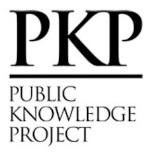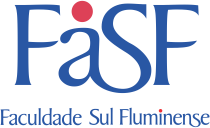ANÁLISE SOBRE AS DIMENSÕES DA FELICIDADE NO TRABALHO EM ORGANIZAÇÕES DA REGIÃO DE CAXIAS DO SUL, RS
DOI:
https://doi.org/10.22408/reva902024937e-9008Resumo
A felicidade no trabalho pode refletir no comportamento do indivíduo e, por conseguinte, influenciar o aumento da produtividade e a diminuição da rotatividade. Tendo isso em vista, o objetivo deste estudo consiste em analisar a influência das dimensões de felicidade no trabalho dos funcionários de organizações da região de Caxias do Sul, Rio Grande do Sul. Para isso, procedeu-se a uma pesquisa de abordagem quantitativa, com técnica de coleta survey junto a uma amostra não probabilística por conveniência. Os resultados obtidos demonstram relação positiva entre felicidade na organização e felicidade na função. Há, ainda, uma relação linear positiva entre felicidade no trabalho e recomendação da organização para se trabalhar, apontando as dimensões da organização como um influenciador deste resultado.
Downloads
Referências
AGUINIS, Herman; BURGI-TIAN, Jing. Measuring performance during crises and beyond: The Performance Promoter Score. Business Horizons, v. 64, n. 1, p. 149-160, 2021.
AL IDRUS, Salim; AHMAR, Ansari Saleh; ABDUSSAKIR. The effect of organizational learning on market orientation moderated by job satisfaction. Cogent Business & Management, v. 5, n. 1, p. 1475048, 2018.
ANDERSEN, Morten Kamp; SVEGAARD, Simon; ANKERSTJERNE, Peter. Linking Customer Experience with Service Employee Engagement. ISS, 2015.
BANDURA, Randall P.; LYONS, Paul R. The art and science of job satisfaction: Much of it comes down to decent management practice. Human Resource Management International Digest, v. 22, n. 7, p. 32-35, 2014.
BANI-MELHEM, Shaker; ZEFFANE, Rachid; ALBAITY, Mohamed. Determinants of employees’ innovative behavior. International Journal of Contemporary Hospitality Management, v. 30, n. 3, p. 1601-1620, 2018.
CAMPANIÇO, Esmeralda NL. Felicidade organizacional-proposta de escala de medida para as organizações em Portugal. 2012. 222 f. Dissertação (Mestrado) – Mestrado em Gestão, Universidade Atlântica, Barcarena, 2012.
COOPER, Donald R.; SCHINDLER, Pamela. Métodos de pesquisa em administração. 7.ed. Porto Alegre: Bookman, 2003.
DANCEY, Christine P.; REIDY, John. Estatística sem matemática para psicologia. 5. ed. Porto Alegre: Penso, 2013. Disponível em: <https://integrada.minhabiblioteca.com.br/books/9788565848114>. Acesso em: 1 nov. 2018.
DE WAAL, André. Increasing organisational attractiveness: The role of the HPO and happiness at work frameworks. Journal of Organizational Effectiveness: People and Performance, v. 5, n. 2, p. 124-141, 2018.
DE WINTER, Joost CF; GOSLING, Samuel D.; POTTER, Jeff. Comparing the Pearson and Spearman correlation coefficients across distributions and sample sizes: A tutorial using simulations and empirical data. Psychological methods, v. 21, n. 3, p. 273, 2016.
FARSEN, Thaís Cristine et al. Qualidade de vida, Bem-estar e Felicidade no Trabalho: sinônimos ou conceitos que se diferenciam? Interação em Psicologia, v. 22, n. 1, 2018.
FIELD, Andy. Descobrindo a estatística usando o SPSS. 2.ed. Porto Alegre: Artmed, 2009. Disponível em: <https://integrada.minhabiblioteca.com.br/books/9788536320182>. Acesso em: 5 nov. 2018.
FLETCHER, Luke; BAILEY, Catherine; GILMAN, Mark W. Fluctuating levels of personal role engagement within the working day: A multilevel study. Human Resource Management Journal, v. 28, n. 1, p. 128-147, 2018.
GIL, Antonio Carlos. Métodos e técnicas de pesquisa social. 6. ed. São Paulo: Atlas, 2008.
GRIJALVA, Paola. A tool to assess continuous improvement culture: adapting SERVQUAL scale to measure employee satisfaction, and identify factors of success. In: Proceedings of the International Annual Conference of the American Society for Engineering Management. American Society for Engineering Management (ASEM), 2016. p. 1-10.
GULYANI, Gaatha; SHARMA, Tanuja. Total rewards components and work happiness in new ventures: The mediating role of work engagement. In: Evidence-based HRM: a Global Forum for Empirical Scholarship. Emerald Publishing Limited, 2018. p. 255-271.
GYELTSHEN, Cheki; BERI, Nimisha. Work Place Happiness: A Tool for Teacher Effectiveness. Indian Journal of Public Health Research & Development, v. 9, n. 12, p. 1816-1820, 2018.
HOSIE, Peter; SHARMA, Piyush; KINGSHOTT, Russel PJ. “Happy-performing managers” thesis: Testing the mediating role of job-related affective outcomes on the impact of role stressors on contextual performance. International Journal of Manpower, 2019.
JOO, Baek-Kyoo; LEE, Insuk. Workplace happiness: work engagement, career satisfaction, and subjective well-being. In: Evidence-based HRM: A Global Forum for Empirical Scholarship. Emerald Publishing Limited, 2017. p. 206-221.
KÖCHE, José Carlos. Fundamentos de metodologia científica: teoria da ciência e iniciação à pesquisa. 27. ed. Petrópolis, RJ: Vozes, 2010.
KREKEL, Christian; WARD, George; NEVE, Jan-Emmanuel. Employee well-being, productivity, and firm performance: evidence and case studies. Global Happiness and Wellbeing, 2019.
NUNES, D. B. Proposição de um modelo de regressão linear para avaliação do valor de mercado de apartamentos residenciais. 2016. 113 f. Dissertação (Mestrado em Engenharia Civil: Estruturas e Construção Civil) - Centro de Tecnologia, Universidade Federal do Ceará, Fortaleza, 2016. Disponível em: <http://www.repositorio.ufc.br/handle/riufc/24078>. Acesso em 5 nov. 2018.
OERLEMANS, Wido GM; BAKKER, Arnold B. Motivating job characteristics and happiness at work: A multilevel perspective. Journal of Applied Psychology, v. 103, n. 11, p. 1230, 2018.
OSWALD, Andrew J.; PROTO, Eugenio; SGROI, Daniel. Happiness and productivity. Journal of Labor Economics, v. 33, n. 4, p. 789-822, 2015.
PARIDA, Ashutosh. Employee Experience Framework and its impact on Employee Journey Mapping. Psychology and Education Journal, v. 57, n. 9, p. 4769-4781, 2020.
PELUSO, Alessandro M.; INNOCENTI, Laura; PILATI, Massimo. Pay is not everything: differential effects of monetary and non-monetary rewards on employees’ attitudes and behaviours. In: Evidence-based HRM: A Global Forum for Empirical Scholarship. Emerald Publishing Limited, 2017. p. 311-327.
PEPEY, Maria et al. Happiness at Work: Organizational Culture, Job Embeddedness, and Continuance Commitment. Job Embeddedness, and Continuance Commitment, 2016.
PESTANA, Maria Helena; GAGEIRO, João Nunes. Análise de dados para ciências sociais: a complementaridade do SPSS. 4. ed. rev. e aum. Lisboa, Portugal: Sílabo, 2005.
REICHHELD, Frederick F. The one number you need to grow. Harvard Business Review, v. 81, n. 12, p. 46-55, 2003.
SALAS-VALLINA, Andrés et al. On the road to happiness at work (HAW) Transformational leadership and organizational learning capability as drivers of HAW in a healthcare context. Personnel Review, v. 46, n. 2, p. 314-338, 2017.
SALAS-VALLINA, Andres; FERNANDEZ, Rafael. The HRM-performance relationship revisited: Inspirational motivation, participative decision making and happiness at work (HAW). Employee Relations, v. 39, n. 5, p. 626-642, 2017.
SINGH, Sanjay; AGGARWAL, Yogita. Happiness at Work Scale: Construction and psychometric validation of a measure using mixed method approach. Journal of Happiness Studies, v. 19, n. 5, p. 1439-1463, 2018.
VALLINA, Andrés Salas; GUERRERO, Rafael Fernández. The human side of leadership: exploring the relationship between servant leadership, organisational facilitators and happiness at work. International Journal of Environment and Health, v. 9, n. 2, p. 131-150, 2018.
YALABIK, Zeynep Yesim; RAYTON, Bruce A.; RAPTI, Andriana. Facets of job satisfaction and work engagement. In: Evidence-based HRM: a global forum for empirical scholarship. Emerald Publishing Limited, p. 248-265, 2017.
YANEVA, Maya. Employee Satisfaction vs. Employee Engagement vs. Employee NPS. European Journal of Economics and Business Studies, v. 4, n. 1, p. 221-227, 2018.
Downloads
Publicado
Como Citar
Edição
Seção
Licença
Autores que publicam nesta revista concordam com os seguintes termos:
Autores mantêm os direitos autorais e concedem à revista o direito de primeira publicação;
Autores têm permissão e são estimulados a publicar e distribuir seu trabalho online (ex.: em repositórios institucionais ou na sua página pessoal) já que isso pode gerar alterações produtivas, bem como aumentar o impacto e a citação do trabalho publicado
Em virtude da aparecerem nesta revista de acesso público, os artigos são de uso gratuito, com atribuições próprias, em aplicações educacionais e não-comerciais.











